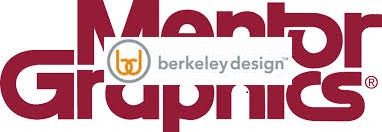 Mentor Graphics acquired Berkeley Design Automation this morning. The details of the deal were unannounced. This is a strong move by Mentor to challenge Cadence and Synopsys in the nanometer analog/mixed-signal market and nanometer memory characterization market, respectively. Mentor not only acquires the technology and team, but BDA’s list of blue-chip leading-edge customer engagements including the likes of Qualcomm, Samsung, Sony, Fujitsu, Broadcom, TSMC, and NXP.
Mentor Graphics acquired Berkeley Design Automation this morning. The details of the deal were unannounced. This is a strong move by Mentor to challenge Cadence and Synopsys in the nanometer analog/mixed-signal market and nanometer memory characterization market, respectively. Mentor not only acquires the technology and team, but BDA’s list of blue-chip leading-edge customer engagements including the likes of Qualcomm, Samsung, Sony, Fujitsu, Broadcom, TSMC, and NXP.
BDA established itself in the mid-2000’s by solving circuit verification problems that no other EDA company could solve—problems like silicon-accurate device noise analysis on an entire post-layout closed-loop integer-N and fractional-N PLLs, high-speed I/O, and ADCs—while co-simulating with a standard Verilog simulator. (It hurts to even think of problems like this). (See Silicon Correlation)
BDA built its business by literally asking leading-edge analog/mixed-signal (A/MS) design teams for the problems that no other simulator can handle and providing the solution. BDA would then move “downstream” to run circuit simulations that other simulators could run, but BDA’s Analog FastSPICE simulator would run them 5x-10x faster than any other foundry-certified simulator. They take the same approach to this day. (See BDA History)
Customers and industry pundits alike give BDA credit for sending a loud-and-clear wakeup call to Cadence and Synopsys. Cadence responded with APS, which AFS continues to beats by over 2x in runtime and 10x in capacity. Synopsys tried XA with little success, and later bought Magma for FineSim. While FineSim is fast, it’s not nearly accurate, robust, or feature-rich enough for advanced A/MS circuits. Moreover, FineSim is not well integrated into Cadence’s Analog Design Environment, which is a must-have to compete with Cadence for “real” A/MS design team. Meanwhile BDA recently announced AFS Mega which brings SPICE accuracy memory application, and announced TSMC has adopted it for all of their 16nm FinFET SRAM characterization. (See TSMC and BDA)
In apparent effort to slow or stop BDA, last spring Cadence hit them with a lawsuit regarding AFS integration into ADE. (See Cadence vs. BDA) There was immediate overwhelming customer support for BDA, and the case was dismissed with prejudice earlier this year. The undisclosed settlement agreement gives BDA a multi-year ADE integration with ADE, where standard Cadence Connections members have to renew annually.
With this move Mentor is suddenly not just on the map, but arguably takes a substantial technical lead nanometer-scale circuit verification. Mentor removes the small-EDA company barriers that BDA continuously faced and get them immediate access to the broad semiconductor market. Look for Mentor to couple AFS with Questa in the front end to take on AMS Designer and to couple AFS with Calibre in the back-end to create highly-differentiated flow to silicon.
Congratulations to everybody at BDA on the great exit. It was a pleasure working with you!
More Articles by Daniel Nenni…..
lang: en_US
Share this post via:






Comments
0 Replies to “Mentor Acquires BDA!”
You must register or log in to view/post comments.